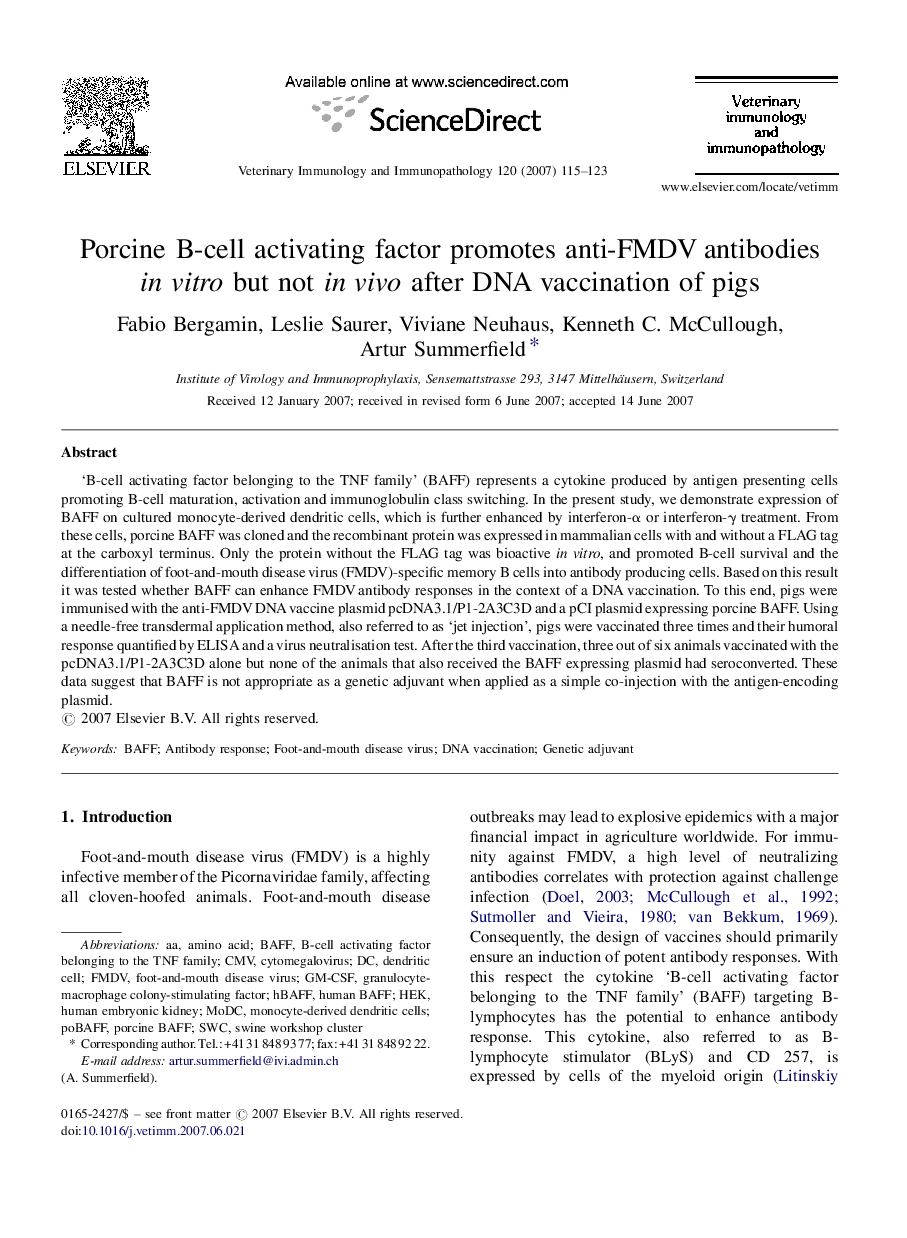| Article ID | Journal | Published Year | Pages | File Type |
|---|---|---|---|---|
| 2462932 | Veterinary Immunology and Immunopathology | 2007 | 9 Pages |
‘B-cell activating factor belonging to the TNF family’ (BAFF) represents a cytokine produced by antigen presenting cells promoting B-cell maturation, activation and immunoglobulin class switching. In the present study, we demonstrate expression of BAFF on cultured monocyte-derived dendritic cells, which is further enhanced by interferon-α or interferon-γ treatment. From these cells, porcine BAFF was cloned and the recombinant protein was expressed in mammalian cells with and without a FLAG tag at the carboxyl terminus. Only the protein without the FLAG tag was bioactive in vitro, and promoted B-cell survival and the differentiation of foot-and-mouth disease virus (FMDV)-specific memory B cells into antibody producing cells. Based on this result it was tested whether BAFF can enhance FMDV antibody responses in the context of a DNA vaccination. To this end, pigs were immunised with the anti-FMDV DNA vaccine plasmid pcDNA3.1/P1-2A3C3D and a pCI plasmid expressing porcine BAFF. Using a needle-free transdermal application method, also referred to as ‘jet injection’, pigs were vaccinated three times and their humoral response quantified by ELISA and a virus neutralisation test. After the third vaccination, three out of six animals vaccinated with the pcDNA3.1/P1-2A3C3D alone but none of the animals that also received the BAFF expressing plasmid had seroconverted. These data suggest that BAFF is not appropriate as a genetic adjuvant when applied as a simple co-injection with the antigen-encoding plasmid.
